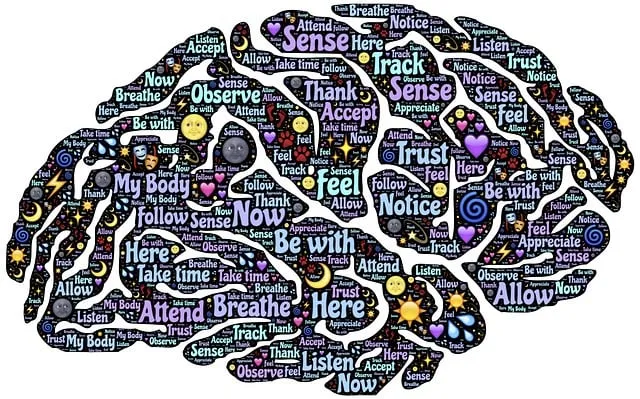The Longmont Kaiser Permanente mental health department prioritizes culturally competent care, addressing biases and systemic racism through comprehensive training. They develop immersive programs with evidence-based practices to enhance provider understanding of diverse communities. Continuous improvement strategies, including feedback sessions and collaboration with community partners, ensure relevant and effective training for managing diverse patient populations, ultimately improving patient outcomes.
“Cultural competency training is a vital component of modern healthcare, especially within diverse communities like Longmont. This article explores the transformative potential of such programs at Longmont Kaiser Permanente’s Mental Health Department. We delve into the significant impact of cultural biases and stereotypes on patient care, offering insights into designing effective training. Subsequently, we present implementation strategies to ensure continuous improvement in cultural competency among healthcare providers, highlighting best practices from within the department.”
- Understanding Cultural Competency in Healthcare: Why It Matters for Mental Health Services at Longmont Kaiser Permanente
- The Impact of Cultural Biases and Stereotypes on Patient Care within the Mental Health Department
- Designing Effective Training Programs to Enhance Cultural Sensitivity Among Healthcare Providers
- Implementation Strategies for Continuous Improvement in Cultural Competency Training at Longmont Kaiser Permanente
Understanding Cultural Competency in Healthcare: Why It Matters for Mental Health Services at Longmont Kaiser Permanente

Cultural competency is a vital aspect of healthcare that Longmont Kaiser Permanente’s mental health department prioritizes. In today’s diverse society, understanding and respecting different cultural backgrounds, beliefs, and values are essential for providing quality care to all patients. This is especially true within the mental health services sector, where individuals from various ethnic, racial, and socioeconomic groups may face unique challenges and have distinct needs. By promoting cultural competency, Longmont Kaiser Permanente aims to create an inclusive environment that fosters effective communication and enhances patient outcomes.
The mental health department recognizes that cultural barriers can impact a patient’s willingness to seek help, their understanding of diagnoses, and the adherence to treatment plans. Training in cultural competency equips healthcare providers with the skills to recognize these barriers and adapt their practices accordingly. This includes learning about coping skills development tailored to different cultural contexts, which can improve patient engagement and satisfaction. Additionally, Longmont Kaiser Permanente’s commitment extends to public awareness campaigns development and burnout prevention strategies for healthcare providers, ensuring a holistic approach to delivering culturally sensitive mental health services within the organization.
The Impact of Cultural Biases and Stereotypes on Patient Care within the Mental Health Department

In the mental health department at Longmont Kaiser Permanente, addressing cultural biases and stereotypes is paramount to delivering effective patient care. Healthcare providers, despite their best intentions, may unconsciously hold preconceived notions about patients based on race, ethnicity, gender, or other cultural markers. These biases can significantly impact treatment outcomes, as they often lead to misdiagnoses, inappropriate medication choices, or a lack of understanding regarding a patient’s unique psychological and social context. For instance, a provider’s assumption that a patient from a specific cultural background may not respond well to certain therapeutic approaches could hinder access to Trauma Support Services, which are crucial for many individuals’ recovery.
The mental health department actively works towards mitigating these issues through comprehensive training programs. By fostering cultural competency, providers can create an environment where every patient feels heard and respected. This involves recognizing personal biases, understanding the impact of systemic racism and discrimination on mental health, and integrating culturally sensitive practices into daily operations. Additionally, regular discussions around Burnout Prevention and effective Risk Management Planning for Mental Health Professionals are essential to maintaining a supportive work environment that benefits both patients and practitioners.
Designing Effective Training Programs to Enhance Cultural Sensitivity Among Healthcare Providers

Effective cultural competency training for healthcare providers involves creating immersive programs that reflect the diverse communities they serve. At Longmont Kaiser Permanente’s mental health department, for instance, the number of initiatives focused on this aspect has been increasing. These programs should go beyond surface-level awareness and promote deeper understanding through interactive workshops, case studies, and role-playing scenarios. By engaging providers in discussions about unconscious biases, microaggressions, and cultural nuances, they gain practical skills to deliver more personalized care.
The incorporation of evidence-based practices like Crisis Intervention Guidance, Stress Management, and Compassion Cultivation can significantly enhance these training programs. Such approaches not only equip healthcare providers with tools for navigating complex cultural landscapes but also foster an empathetic environment that benefits both patients and practitioners. Regularly updating training curricula to reflect emerging research ensures that Longmont Kaiser Permanente’s mental health department stays at the forefront of culturally sensitive healthcare delivery.
Implementation Strategies for Continuous Improvement in Cultural Competency Training at Longmont Kaiser Permanente

At Longmont Kaiser Permanente, continuous improvement in cultural competency training is a top priority, especially within their robust mental health department. They implement several strategies to ensure these trainings remain effective and engaging. One key approach involves regular feedback sessions with staff, allowing for dynamic adjustments based on evolving needs and challenges. This includes post-training assessments and focused group discussions to gauge the impact of programs.
Additionally, Longmont Kaiser Permanente fosters a culture of collaboration by involving community partners and experts in various cultural groups. These partnerships enrich the training content, ensuring it stays current and relevant. The mental health department also integrates real-world case studies and role-playing scenarios, enhancing healthcare providers’ confidence in managing diverse patient populations. Such interactive methods not only boost their skills but also contribute to better risk management planning for mental health professionals.
Cultural competency training is a game-changer for Longmont Kaiser Permanente’s mental health services, addressing biases and stereotypes that impact patient care. By designing effective programs and implementing continuous improvement strategies, the healthcare provider can enhance cultural sensitivity among its number of mental health department staff, ultimately fostering better patient outcomes and experiences within this vital department.






